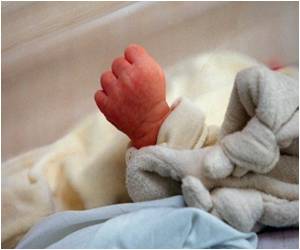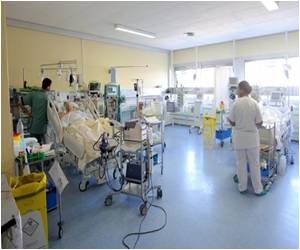Frequent use of antibacterial soaps in nursing mothers could harm their babies, a new study finds

Rebekah Kennedy, a UT graduate student pursuing a dual master's degree in public health and nutrition, and Jiangang Chen, an assistant professor in the UT Department of Public Health, presented the results this month at the Endocrine Society's 95th Annual Meeting and Expo in San Francisco. Kennedy was the study's lead author.
Triclocarban, a bactericide, is found primarily in antibacterial bar soaps.
The researchers noted that they were not condemning the use of antibacterial soaps.
"People have to weigh their own risks and decide what would be the best route," Kennedy said. "There's always a time and place for antibacterial bar soaps, such as in health care settings where the chance of infection and transmission is high. For the average person, antibacterial soap is no more effective than regular soap."
Chen conducted an earlier study that examined how prolonged exposure to triclocarban affected growth of sex organs in adult male rats. Kennedy decided to go a step further and look into how it would affect baby rats in the womb and during nursing.
Advertisement
During Kennedy's research, pregnant rats fed with triclocarban through food had similar blood concentrations compared to human blood concentrations after a 15-minute shower using antibacterial soap.
Advertisement
The results showed that a mother's long-term use and exposure to triclocarban could affect her baby's early development, according to the animal model, Kennedy said.
Humans may be exposed to triclocarban through other ways besides skin absorption, including produce consumption, Chen said. Triclocarban is washed down the drain, where about 95 percent of it is removed when wastewater is treated. The remainder may still be a problem, particularly since treated wastewater is used for agricultural purposes.
"There are potential exposure routes in daily life we are not aware of," Chen said. "The goal is to try to minimize those if at all possible."
Source-Eurekalert







